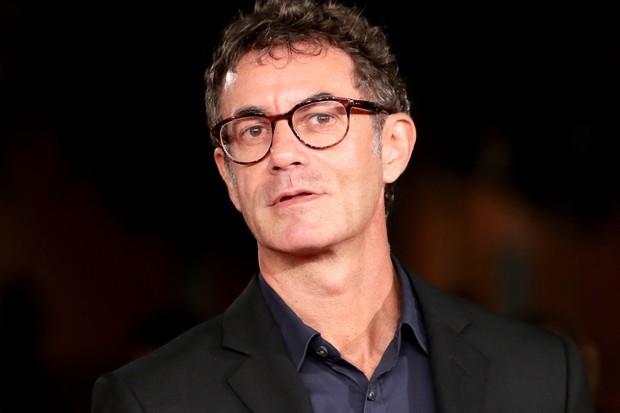Francesco Patierno • Director
Naples '44, un espejo del presente
por Camillo De Marco
- Hemos entrevistado en Roma al director italiano Francesco Patierno, que hizo su documental Naples ‘44 con material de archivo, fotos, clips e imágenes rodadas en el presente

Este artículo está disponible en inglés.
Francesco Patierno directed Napoli ’44 [+lee también:
crítica
tráiler
entrevista: Francesco Patierno
ficha de la película], an adaptation of the book Naples '44 by British official Norman Lewis, using a technique that he also employed for his previous film La guerra dei vulcani, using archive material, photos, clips from films, and footage shot in the present-day. The voice of the narrator reading the original text is that of Benedict Cumberbatch, whilst the Italian voice we hear is that of Adriano Giannini. After having its premiere at the Rome Film Fest, the film, which was produced by Dazzle Communication with Rai Cinema, will hit Sky Cinema in January, and will perhaps then be shown in cinemas. “I didn’t want to paint a flattering portrait of Naples”, said Patierno, “I thought the portrait painted by the book was a balanced one. It all started with an account by my father, who one day told me how he survived a bombing simply because he was on the right side of the road. He told me that to understand how the city survived that period of history, I should read Norman Lewis’ book”.
Cineuropa: Today the collective imagination of Naples is influenced above all by TV series Gomorra. How much does the film look at Naples’ roots?
Francesco Patierno: When I read the book I understood just how much of our identity was in those pages, I saw a reflection of myself as a Neapolitan in there. And above all, I thought the book greatly reflected the present-day reality of the city, of a people that are suffering but also have a great desire to live and take great pleasure in doing so. It was this that compelled me to get involved in this project and create an emotional story that blends aspects of the past and the present. I think that’s how memory works.
How did you choose the film sequences that appear in Naples '44?
I had already worked on the manipulation of images for La Guerra dei Vulcani, injecting the images from these films with the meaning of the story I was telling. Seeing as my little experiment worked, I honed the technique for this film. Finding films that were suitable, like Black City, was like having the opportunity to direct the actors in them all over again. Totò, for example, became Lattarulo, the lawyer and informant described in Norman Lewis’ book.
Was the editing complicated?
We showed the first edit, which I describe as psychedelic because it didn’t even have a narrative voice, to a very authoritative British script editor, who sent me first-class notes, in which he explained what worked and what needed improving. These notes helped me enormously in understanding what I needed to work on most, given the time we had available for making the film.
How did you end up with Cumberbatch?
Naples '44 is a project that came about in English, like the book, and we wanted to use the original text. We needed an English-speaking actor capable of getting the text across as effectively as possible. We didn’t want a narrative voice that was too rhetorical, nor one that was too cold, and we didn’t want anyone predictable. Cumberbatch came out top of our list, because we also heard some of the work he did for radio, heard his voice without any images accompanying it.
(Traducción del italiano)
¿Te ha gustado este artículo? Suscríbete a nuestra newsletter y recibe más artículos como este directamente en tu email.
















